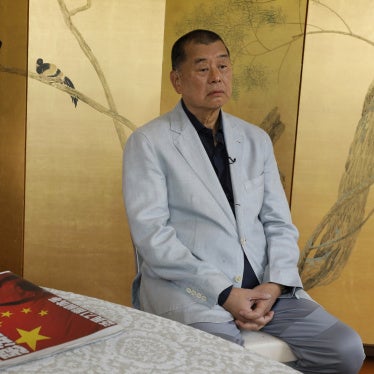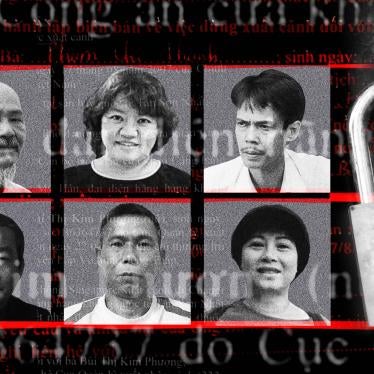Over the years, Human Rights Watch has documented a tightening of space for civil society, freedom of speech, and peaceful political opposition; that trend has accelerated in recent months. The decision four days ago, on September 24, to sentence in absentia opposition leader Sam Rainsy to 10 years’ imprisonment was a new blow to freedom of expression and the rule of law in Cambodia.
The court sentenced Sam Rainsy, leader of the opposition since 1995, for disseminating a map that purports to show that Cambodia's border with Vietnam had been moved. The trial was closed to the public, though the verdict was read out by Judge Ke Sakhan, who said, ''The acts committed by the offender seriously affected the honor of the government."
Since 2009, more than 10 critics of the government have been prosecuted for criminal defamation and disinformation based on complaints by government and military officials. Authorities continue to forcibly and often violently disperse peaceful demonstrations. Workers who organize or strike for better wages and working conditions are subject to harassment, physical attacks, threats of litigation, and unfair dismissal. Community activists protesting forced evictions and land confiscation face arrest and legal action, with more than 60 people imprisoned or awaiting trial for their involvement in land disputes.
We note that the Cambodian government has cooperated with the Special Rapporteur. However, we would like to highlight the need for the government to pay serious attention to the recommendations made by the Special Rapporteur and his predecessors, particularly regarding the need to respect freedom of expression, association and peaceful assembly, and to ensure accountability for human rights violations. We strongly support the Special Rapporteur's recommendation that public figures not use the courts to silence and intimidate critics and that defamation and disinformation to be completely decriminalized; Cambodia's constitutions and its obligations via the international human rights instruments also stipulate such standards.
We would like to ask the Special Rapporteur to explain the steps he considers necessary for establishing an independent judiciary in Cambodia and how Cambodia would benefit from such measures?








